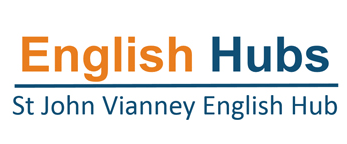
P4C
Why is P4C important to us at St John Vianney?
Philosophy for Children (P4C) is an approach to teaching and learning, in which children take part in philosophical enquiry. It aims to enhance thinking and communication skills, boost confidence, self-esteem and improve behaviour. P4C encourages teachers and pupils to think in a caring, collaborative, creative and critical way (the 4C’s of P4C). P4C aims to help children become more thoughtful, reflective and reasonable individuals. At St. John Vianney, we believe that children are given the opportunity to maximise their potential; intellectually, socially, morally, emotionally and culturally and Philosophy for Children is an opportunity for children to come together as a whole class to provide a platform for discussion, allowing every child to speak freely without feeling pressure in an inclusive atmosphere. It gives the children a chance to voice their opinions and listen to their peers in a structured, respectful and nurturing environment. The aim of P4C at St John Vianney is to develop children’s oracy and vocabulary, increasing confidence when speaking in front of groups, to increase concentration span and to develop their thinking skills. We also aim to build respect between pupils through the opportunity to politely agree and disagree with thoughts and opinions of others. P4C helps children to become more critical thinkers and allows children to raise topics that they are particularly interested in and are relevant to them. P4C promotes an enquiry-based curriculum where pupils are encouraged to ask questions and find the answers through discussion of social values. Therefore, children develop the ability to recognise differences and explore these constructively. The approach fostered through P4C will help to develop higher levels of self-esteem and intellectual confidence for our children. Pupils learn the skills to be clear in their thinking so that they can explain their ideas, give good reasons for their views and develop their vocabulary. It teaches patience, respect to others and a better understanding of the world around us.
What research tells us?
Philosophy for Children (P4C) is an approach to teaching and learning, in which children take part in philosophical enquiry. It aims to enhance thinking and communication skills, boost confidence, self-esteem and improve behaviour. P4C encourages teachers and pupils to think in a caring, collaborative, creative and critical way (the 4C’s of P4C). P4C aims to help children become more thoughtful, reflective and reasonable individuals.
Education Endowment Foundation research on SAPERE P4C and attainment in primary reading, writing and maths, 2015
This randomised control trial in English schools found that:
- children eligible for free school meals who took part in P4C made four months’ additional progress in reading, three months’ additional progress in maths and two months’ additional progress in writing
- overall, Key Stage Two pupils who took part in P4C made two additional months’ progress in reading and maths
In addition, teachers and pupils reported that SAPERE P4C had a positive influence on wider outcomes such as pupils’ confidence to speak, listening skills, and self-esteem.
Education Endowment Foundation research on SAPERE P4C and attainment in primary reading, 2021
This follow-up study in English schools found no effect on reading (the primary outcome) and maths but did find other strong positive results in key P4C areas such as respect for others’ opinions, ability to express views clearly, and self-confidence. Both teachers and students in schools implementing P4C found it enjoyable and engaging, and teachers felt strongly that P4C has a positive impact on their students’ social, thinking and communication skills.
- 96% of teachers felt that P4C helped pupils to respect others’ opinions
- 91% of teachers felt that P4C improved pupils’ ability to question and reason
- 93% of teachers felt that P4C improved pupils’ ability to express views clearly
In addition, no negative impacts were found, confirming that schools can reap all the benefits of P4C – in terms of social, emotional, behavioural and well-being outcomes – without reducing reading or maths outcomes.
A number of teachers also noted that those pupils who struggle to ‘have a voice’ in normal lessons – including those with English as an Additional Language, those who lacked confidence, and those with special educational needs – particularly benefited from P4C. Pupils themselves emphasised that they enjoyed being able to express their own opinions in a non-judgmental way.
Nuffield Foundation on the non-cognitive benefits of SAPERE P4C for primary pupils, 2015
This study used data from the EEF’s 2015 study and found that:
- pupils who received the P4C intervention were ahead of their counterparts in self-reported communication skills, teamwork and resilience
- though the effect sizes are generally small, they were larger for pupils living in relative poverty
- on the whole, teachers reported positive effects in pupils’ confidence in questioning and reasoning
- interviews with and observations of pupils confirmed that pupils enjoyed P4C and actively participated in the sessions

Intent
Implementation
Impact
Now time in #SJV4H for a mindfulness session #SJVPE #SJVP4C pic.twitter.com/ymdxLeJU8y
— St John Vianney (@sjvblackpool) December 8, 2022



